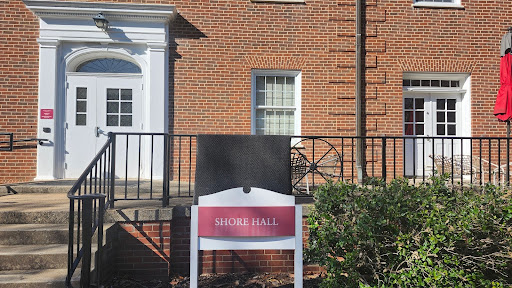In 1964, the Civil Rights Act was passed. In 1965, the Voting Rights Act followed. And, in 1966, three students, James McCorkle ’66, Melrose Nimmo ’66 and Linda Moore Banks ’66, made history as the first African-American graduates from Guilford College.
When Guilford integrated in 1962, McCorkle began his undergraduate education as a chemistry major. That same year, Nimmo entered Guilford as a graduate student in a religion program. One year later, Banks, a biology major, started her undergraduate studies at Guilford at the age of 16.
Later this April, Guilford will host a 50-year reunion for the class of 1966. On April 22, a luncheon for alumni and current students will take place in the Gilmer Room. On April 23, McCorkle, Nimmo, Banks and other Guilford alumni who graduated 50 years ago will be inducted into Guilford’s Golden Circle.
Both events are open to Guilford students.
“The purpose of the event is to honor our prestigious alums,” said Miriam Biber ’02, associate director of alumni relations. “It’s a really cool opportunity for students to see, interact and hear from the folks that were here 50 years ago.”
Toiya Hancock ’93, president of the Black Alumni of Guilford College Advisory Board, spoke fondly of McCorkle, a BAGCAB board member who will be inducted into the Golden Circle on April 23.
“He’s a quiet man … generous with his time, very faithful and consistent,” said Hancock. “I’m glad to say that I know him … and that I’ve had the experience of getting to know him as a member of the board.”
Minnette Coleman ’73, historian of BAGCAB, commented on the inductees as a whole.
“They are a part of the community. … You watch them embody the core values of the College,” said Coleman. “Every generation is different, but the fact that they still want to be a part of Guilford after being gone for 50 years says a lot.”
Senior Marcus Williams, coordinator of Brothers Doing Positive, provided insight on a BDP-sponsored event where black alumni interacted with current Guilford students.
“Some of the alumni at the event spoke out … and they mentioned how … it was a great opportunity to come here, but it wasn’t always easy,” said Williams. “(The alumni) acknowledged the progress Guilford has made … since those times.”
Having arrived at Guilford in the midst of the Civil Rights Movement, Banks took her parents’ advice to heart.
“They said, ‘do your best wherever you are and carry yourself in a manner that will represent both your race as well as your family.’”
Her attitude helped her graduate from Guilford in only three years at the age of 19. Afterwards, Banks worked in various positions at Duke University, the University of Virginia and East Carolina University. She received a second degree in education from ECU.
Banks offered timely advice and encouragement for current Guilford students.
“There are going to be academic challenges, there are going to be social challenges and there will be discrimination, but it’s going to be more sophisticated than it was when I was a teenager,” said Banks. “So, meet these challenges with courage.
“Remember your roots, but (most of) all, remember that you are supporting your race and your country, so make sure you meet the challenge.”












